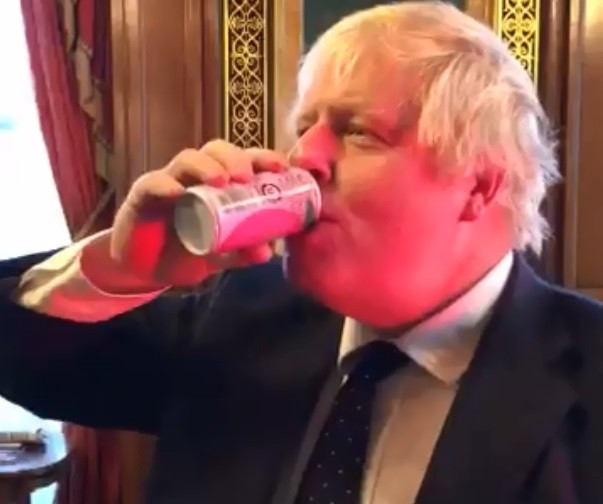Boris Johnson drinks peach juice from Fukushima to prove area is safe after nuclear meltdown
KEY POINTS
- Foreign secretary makes diplomatic gesture in move filmed by Japanese counterpart during UK visit.
- It's seven years since Fukushima Daiichi plant disaster devastated region.
Boris Johnson has been filmed drinking a can of peach juice from Fukushima in a diplomatic move to show products from the area are safe, seven years after a devastating nuclear meltdown.
The foreign secretary was handed the drink as a present from his Japanese counterpart Taro Kono as the pair met at Greenwich Naval College to discuss defence and security co-operations between the two allies.
"Yum," was Johnson's response after taking a swig of the beverage. The move could be seen as significant as several countries across the world, including the US and China, still have strict curbs on imports from japan in the wake of the Fukushima disaster in 2010.
Fukushima's nuclear power plant suffered a huge radiation leak after a massive earthquake and tsunami struck the area in March had knocked its cooling systems out, leaving some of its reactors in meltdown in the worst nuclear accident since the 1986 Chernobyl disaster.
The leaks contaminated the surrounding land, air and water and forced tens of thousands of workers and residents to flee, leading to a major clean up in the area that lasted years.
Elsewhere, defence secretary Gavin Williamson confirmed a three-year defence co-operation plan, which includes sending 45 British Army personnel to train with Japanese soldiers in 2018 – marking the first time ever that UK personnel have exercised on Japanese soil and the first occasion that non-US troops have exercised in the country.
Williamson also said HMS Sutherland will visit Japan next year and the HMS Argyll will be sent to the country to take part in exercises,
He added: "Japan is one of our closest partners in the Asia Pacific region and as tension grows on the Korean peninsula, our relationship is vitally important.
"2018 will mark the year UK and Japanese forces work even more closely together, with two of our Royal Navy frigates visiting the country and UK troops training on Japanese soil for the very first time."























